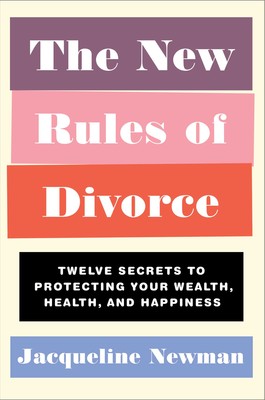Substance-Abuse History and Other Mysteries of Child-Custody Battles
Originally Published by Beth Greenfield on Yahoo! News, July 7, 2015
When news broke Monday of the not-so-unexpected split between Kourtney Kardashian and Scott Disick, attention quickly turned to how the breakup would affect the couple’s three kids — Mason, 5, Penelope, 2, and Reign, 7 months. At least one expert speculated that Disick, who had a recent stint in rehab and was spotted partying with an ex in France, could have a shot at custody. “Scott can still fight for custody, even with a history of substance abuse,” attorney Kelly Chang Rickert told HollywoodLife.com. “It may be an uphill battle and all depends on whether or not Kourtney will fight.”
As it turns out, histories of drinking and drugging — along with incidents of spousal abuse, joblessness, criminality, and mental issues — are not necessarily automatic outs when it comes to gaining some sort of child custody, according to family-law experts.
“I think what happens is that courts really value the relationship between a parent and child and want to do anything to strengthen it — and, in doing that, will often go beyond what a lay person would say is rational,” New York-based divorce attorney Jacqueline Newman tells Yahoo Parenting.
Simply having had battles with drugs or alcohol “is not going to put that parent in a position of not having access to his or her kids,” she adds. “It’s just a question of under what conditions — court-mandated supervision by a stranger or nanny, not allowing them to drive with the kids, ordering random drug testing. There are a lot of ways to address it.” But the idea of Disick being able to claim custody is “questionable,” Newman believes, “not only because of his partying ways, but because [Kourtney] seems like she’s been the primary caretaker.”
Janell Weinstein, a New Jersey–based family and divorce law attorney, adds, “Courts are looking at what’s best for the children and their safety, and they’re not really as interested in what parents want.” And, she tells Yahoo Parenting, “What’s in the best interest of children is for them to have time with both parents, assuming both parents are fit. And there can always be a change in circumstances — arrangements are not set in stone.”
In the majority of cases, Weinstein adds, both parents will usually have joint legal custody (meaning they share the major decision making power). Though in certain circumstances — when, for example, a parent is incarcerated or deemed “unfit” — one parent may have sole legal custody. But the issue of physical custody and parenting time may be the bigger dispute.
When a parent does have substance abuse issues, Weinstein says, it’s something that will be seriously looked at by a court. “And if you’re at the Scott Disick stage, meaning just out of rehab, that’s not going to bode well,” she says. “He could be looking at mandatory drug testing and supervised visitation — and mom’s going to want that if he still has an issue now. At least she can request that from the court, but it doesn’t mean it’s going to happen.”
Such custody specifics are very “fact sensitive,” Weinstein explains, so how an issue like substance abuse will play out in court depends very much upon how far in the past it is and the likelihood of the problem recurring. Though a judge will probably “air on the side of caution,” he or she will also want to give each parent a fair chance to be in their child’s life, she says. “So if somebody’s worked very hard to get clean, you can’t hold that against them forever.” (Hello, Britney Spears.)
Other issues, in addition to drug and alcohol battles, Weinstein says, are also not automatic grounds for barring a parent from his or her children. “If there has been abuse between husband and wife but not toward the kids — or past mental issues — that also doesn’t necessarily knock [a parent] out of the box for custody.” She adds that, “many times you will have a situation in which the breakup leads to verbal harassment, but that [harassing] person is a great parent — a husband who is very good with parenting, for example, but horrible with his wife,” and the court will look at the good-parenting part. But it will also be watched closely, she notes, as that loose-cannon “characteristic” could eventually come out around the kids and affect the custody arrangement.
It also may not be the best ingredient for fostering closeness between the children and both parents, Newman notes. “Let’s say a husband is verbally abusive toward his wife. A court will look at, if he were to get primary custody, would he speak highly of her to the children? Would he facilitate their relationship with her? Probably not,” she says. Also taken into account would be whether or not the father is abusive toward mom in front of the children, and if he has larger anger issues that could eventually be directed toward the kids.
Even being a financial deadbeat, Newman adds, wouldn’t deny a mom or dad access to a child. “If someone doesn’t pay child support, that doesn’t mean they won’t see their kid — because that’s not good for the kid, who doesn’t know what’s in a parent’s bank account. They just know they want to see mommy or daddy,” she says. “So sometimes punishing the spouse is punishing the child, too.”
Buy Jacqueline's Book
The New Rules of Divorce is the definitive guide to navigating divorce in today’s world.
